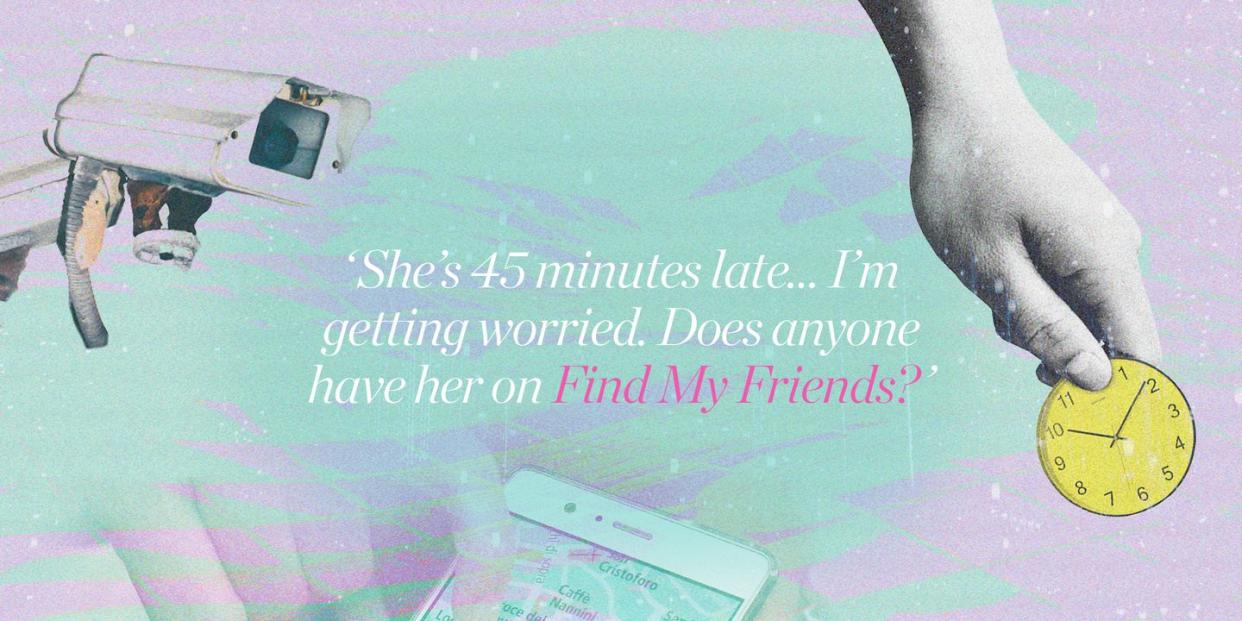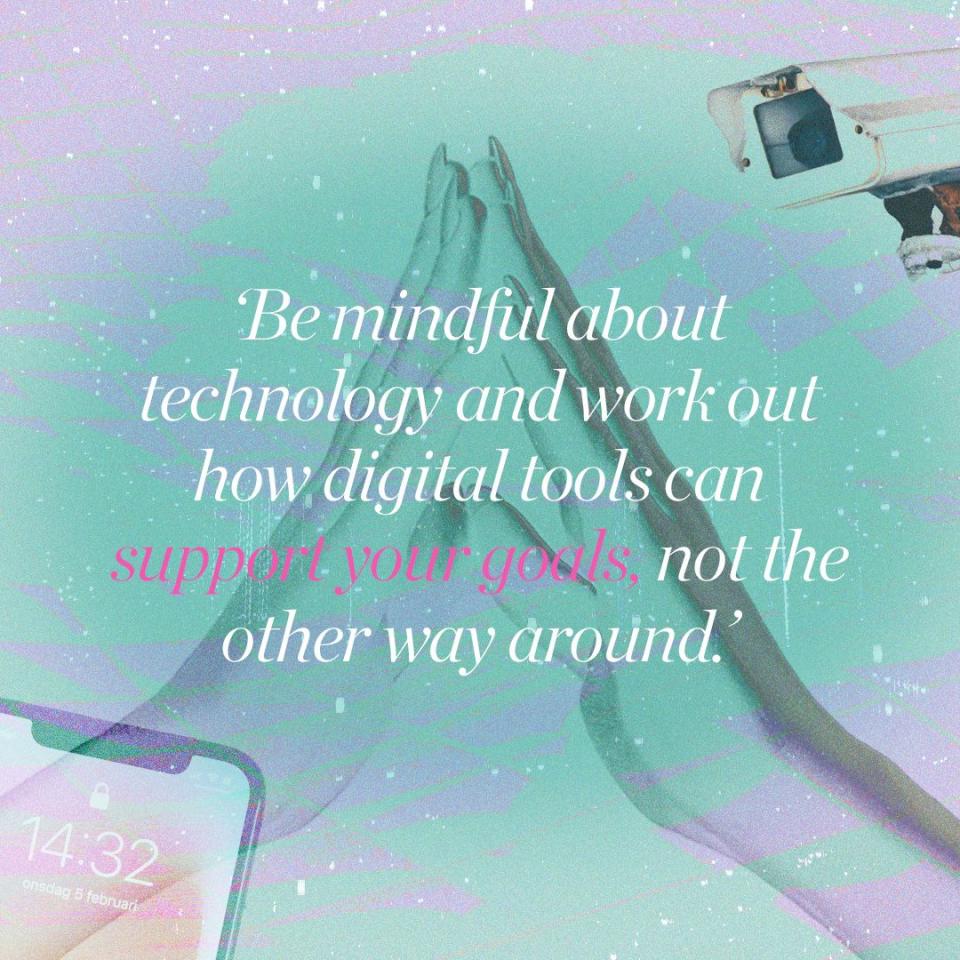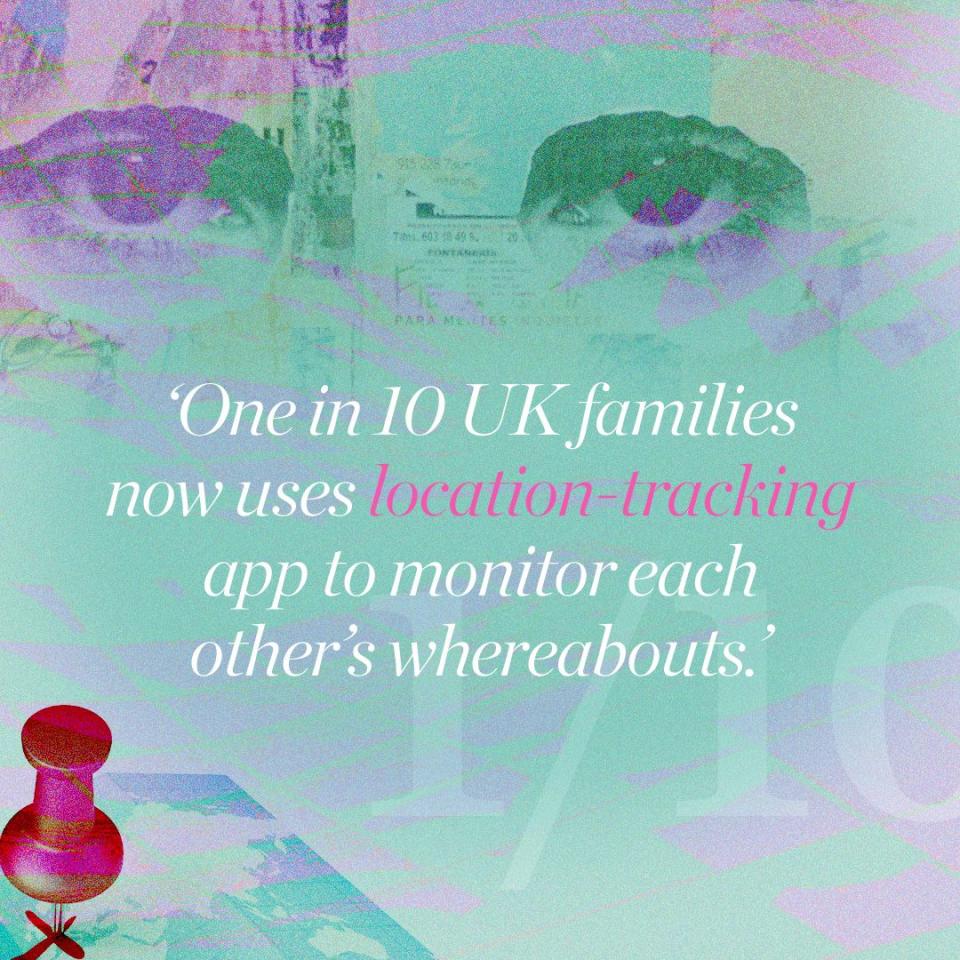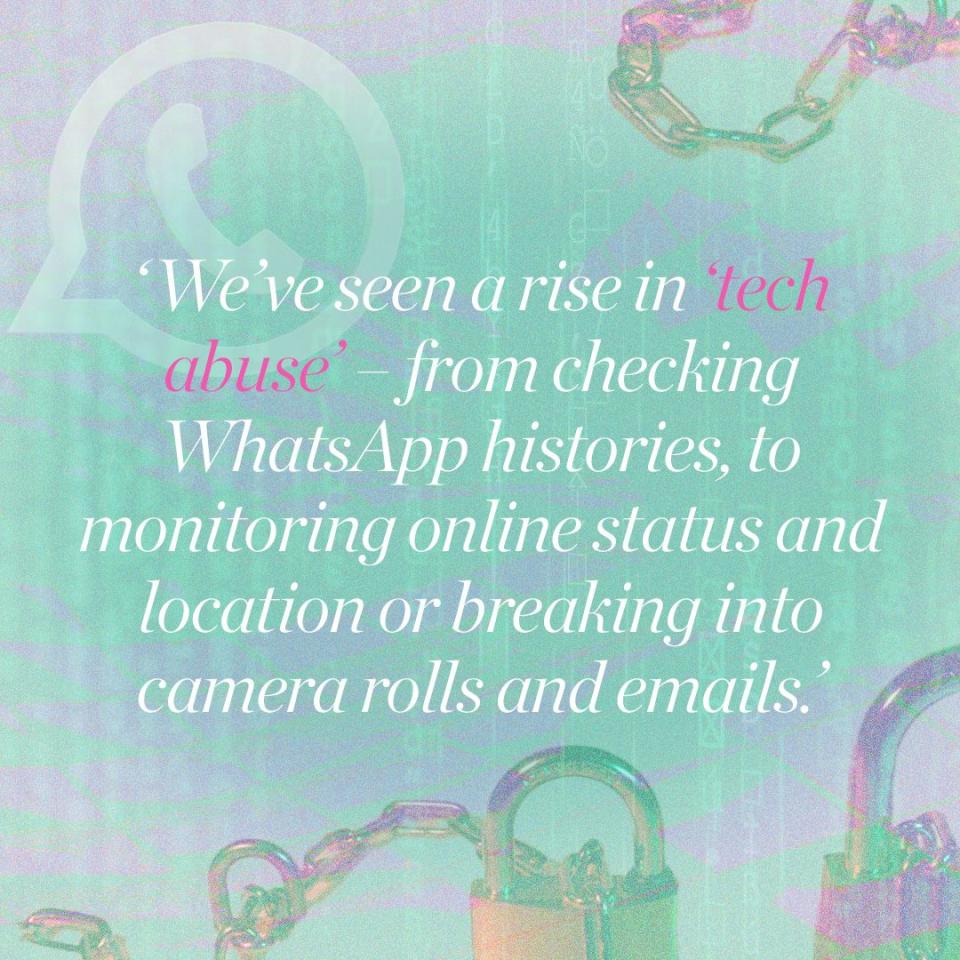Surveillance culture is here. But who is it serving?

‘She’s 45 minutes late… I’m getting worried. Does anyone have her on Find My Friends?’ It’s Saturday night at a new cocktail bar in Leeds and the rest of the gang are midway through the first round of margs. But one of their number has yet to show up; the cursory ‘you okay?’ WhatsApp has gone unanswered.
As traits go, tardiness is a forgivable one. But as one pal pulls up the app on her phone, she crosses an invisible threshold that some around this tequila-stained table consider unbreachable. ‘Are you kidding?’ asks one. ‘I wouldn’t dream of spying on a friend,’ adds another. By the time the second round of drinks arrives, the table has fallen silent.
Welcome to surveillance culture – a way of life in which we are tracked via methods both near (the GPS in your phone) and far (CCTV on every street corner). But if it’s a culture in which we’re well and truly ensnared (good luck trying to escape the watching cameras as you move through a city), it’s also one we opt into. See: the decision to upload your last 5K to Strava, post Instagram Stories from the loos of the taco place you tried on Friday night or, yes, follow your friends on a GPS-tracking app.
Regardless of how much of your own day you spend thinking about the fact that satellites are roaming the earth’s orbit keeping tabs on your every move, the fact that all of us are opting into this surveillance culture so enthusiastically means that expectations have, well, shifted.
And one woman’s handy friend-locating tactic is another’s staggering invasion of privacy. So, in an age when the plot of Gone Girl would feel like an unpublishable premise, how should we show up in work, parenting and friendship? And does monitoring each other’s movements assuage anxiety – or simply create even more of it? In short, what does surveillance culture mean for your health?
Green light
Of course, people were being monitored long before there was an app for that. ‘[In the middle ages], we used to live in villages where people would know everything about our lives,’ says Anastasia Dedyukhina, founder of Consciously Digital, a company that specialises in online wellbeing. In medieval times, there’s also evidence of mass monitoring of speech to quell rebellion and public health tracking to curb the spread of deadly plagues. But if tracking was historically analogue, modern surveillance culture is both digital and data-driven – and we’re as complicit as the ones watching.
‘The surge in tech reliance, enhanced by the pandemic, means we all have detailed digital footprints,’ explains Gaël Duval, who founded the non-profit project e Foundation after becoming concerned about data collection practices used by organisations such as Google.
For Duval, the enticing mix of convenience, aesthetically pleasing design and the gamification of interactions via social media has led to greater acceptance of constant monitoring, particularly among the younger ‘digital native’ generations who are accustomed to tracking. ‘[As a result], a wide array of personal information is now in the hands of tech giants,’ he says, ‘from the cute animal videos you’ve shared to logs of you researching your deepest worries, tracking menstrual cycles and logging sexual preferences.’

But when it comes to the question of usefulness versus intrusiveness, surveillance culture is as divisive as Saltburn. For Ruth Kudzi, a psychologist and the author of How To Feel Better, this can also be traced back to the pandemic. ‘Having our freedom taken away held a mirror up about how we feel when our control is removed,’ she notes, pointing to the polarisation of opinions over the utility and ethics of lockdowns. Fast-forward to today and a similar debate is playing out in the context of surveillance culture.
‘There are those who’ve embraced the convenience that tech offers,’ adds Duval, who personally feels that tracking offers a sense of security. ‘Others, however, have growing concerns about privacy,’ he adds, referring to those for whom tracking the location of a friend who’s late for drinks is a crime on a par with ghosting. Regardless of which camp you fall into, if there’s one thing upon which we can all agree, it’s that the horse has bolted. As Duval puts it, ‘People feel powerless to do anything about surveillance without disrupting their lives.’
Switched on
It’s this feeling of helplessness that can leave you on high alert. And whether the loss of control stems from the fear that your image is all over the internet or that the dates of your last seven periods are being packaged up and sold, it can have a tangible effect on your wellbeing. ‘The body may perceive the situation as a threat,’ explains Jade Thomas, psychotherapist and founder of the Luxe Psychology Practice.
Cue rising levels of cortisol and adrenaline, both of which are triggered by your sympathetic nervous system, or ‘fight or flight’ response. ‘These stress hormones are useful in short bursts, helping us respond to immediate threats,’ adds Elena Touroni, consultant psychologist and founder of The Chelsea Psychology Clinic. ‘But when they’re constantly elevated, it can take a toll on your mind and body.’ Indeed, research has shown that elevated levels of stress hormones for a prolonged period can increase your risk of everything from anxiety and depression to obesity and heart disease.
That’s if an anonymous bot is tracking you. Replace the faceless brand with a trusted friend and the impact can be more significant still. While being with people you trust stimulates oxytocin, a hormone that promotes positive feelings, we also need solitude for our own introspection. ‘But because our brains perceive us as being close to others all the time via our phones, we’re not getting that solo time,’ says Dr Dedyukhina, referring
to having one eye on your mate’s Instagram Stories, the other on the two ticks that indicate your partner has read your latest message.
Thomas agrees, noting how a compulsion to be ‘online’ – which also stems from the addictive design of social media platforms (think: the dopamine rush that comes when you see a stack of red hearts line up on your latest post) – can lead to a feeling of constantly ‘performing’, raising your risk of burnout.
Of course, if there’s one aspect of surveillance culture that is broadly considered a positive shift, it’s keeping track of our children. One in 10 UK families now uses the location-tracking app Life360, which allows family members to monitor each other’s whereabouts.
Katie Marshall uses the software to keep tabs on her 14-year-old daughter. ‘The alerts telling me that she’s got off the bus at school give me peace of mind,’ the 43-year-old mother of two tells WH. For Katie, tracking her children’s location isn’t intrusive; rather, it’s the antithesis of so-called ‘helicopter parenting’. ‘I want them to have independence and not “helicopter” them,’ she explains. ‘For me, this app gives them more freedom without me overly worrying.’
But while wanting this sense of security is valid, it isn’t always rooted in reality. ‘Checking on a teenager may provide reassurance, but it’s only temporary,’ points out Felicity Baker, a clinical psychologist and co-founder of employee wellbeing company Ultimate Resilience, making the point that the little dot on your screen offers no context beyond their location.

That the reassurance is only as reliable as the technology, Dr Baker adds, can also create a cycle of anxiety; we attempt to allay our fears by constantly checking, but doing so has the effect of keeping us focused on the negatives, whereby a phone running out of battery can leave you convinced that your child has been mugged. This, too, does your wellbeing no favours. ‘Over time, this can dysregulate your body’s physiological functions,’ warns Lalitaa Suglani, a psychologist and the author of the book High-Functioning Anxiety (£12.99, Hay House), pointing to heightened anxiety and weakened immunity.
Incognito mode
Let’s not forget, too, that tracking has a dark side – and that one person’s peace of mind is another’s tool for coercive control. ‘We’ve seen a rise in tech abuse,’ confirms Emma Pickering, senior operations tech abuse manager at Refuge, referring to behaviours that encompass everything from checking WhatsApp and Google search histories to monitoring online status and location and breaking into camera rolls and emails.
That most victims of tech abuse experience other forms of abuse – such as physical violence, according to data from Refuge – makes this escalation even more concerning. Evidence submitted to the MP-led Culture, Media and Sport Committee in 2023 indicated that most domestic abuse cases now contain a cyber element, such as tracking software being used to monitor the victim’s whereabouts. (Warning signs include emails being read before you’ve got to them, your phone feeling hot to the touch and data – as well as battery – draining quickly, says Pickering.)
It was a web of surveillance in which Louise*, a mother of two, found herself entangled. Her partner put a camera on their home under the guise of security, following a burglary, before going on to place a tracker on her vehicle. It was seeking help from her GP
for feelings of depression that led her to be referred to a therapist, then for specialist domestic abuse support. In 2019, when Louise’s partner became violent, she fled.
It wasn’t until the case reached court that Louise discovered her ‘tech-savvy’ ex had been recording her conversations at home, along with hacking into her phone and reading her emails. Even after they left, he managed to trace the family numerous times – through a tablet her son was playing games on, she thinks – triggering their repeated relocation.
Louise’s ex has been given a one-year non-molestation order, but Louise is now so wary
of technology that she isn’t even on the electoral register.
Whichever side of the fence you fall on, surveillance culture has you fixed firmly in its gaze. But that doesn’t mean there aren’t steps you can take to reclaim a sense of agency. For Duval, that starts with being mindful about the apps you install, checking what permissions they ask for, using features to block trackers from third-party apps and being aware that smart speakers, such as Google Nest and Amazon Echo, can also collect data.
But the problem isn’t yours alone to solve. ‘The challenge lies in balancing tech advancements with the right to privacy,’ Duval adds. ‘There’s an urgency for governments and regulatory bodies to create and enforce policies that safeguard personal data.’

While you wait on the actions of others, consider the changes you can make to the way you engage with the technology you use regularly, advises Thomas, who recommends implementing hard boundaries; setting a time when you want to log out in advance, replying to messages within set windows and being mindful of what you share online can all help you relearn how to be with yourself and understand what your mind and body really need.
As for your relationships? ‘Be mindful about how technology is affecting your wellbeing,’ Thomas recommends. ‘And notice when it may be contributing to stress or detracting from your real-life relationships.’ It’s important to work out how digital tools can support your goals, not the other way around. Permission to go incognito? Granted.
More Deep Dives...
Egg freezing is the latest wealth divide tearing friendships apart
When mixing finances and friends during a cost of living crisis goes horribly wrong
Cut through the noise and get practical, expert advice, home workouts, easy nutrition and more direct to your inbox. Sign up to the WOMEN'S HEALTH NEWSLETTER
You Might Also Like



